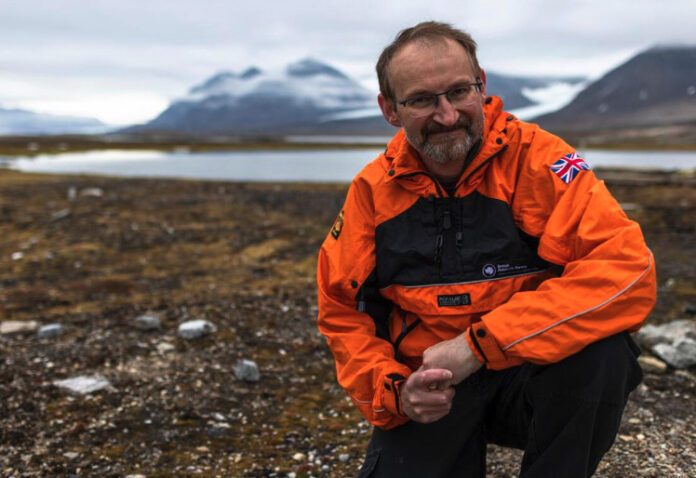A British scientist who monitors Antarctic penguin populations from space has been sharing his real-world expertise with students and academics in Ōtautahi Christchurch.
An Erskine Fellow at Te Whare Wānanga o Waitaha | University of Canterbury (UC), Dr Peter Fretwell is one of up to 70 international senior academics who become visiting lecturers at UC each year through UC’s Erskine Programme, which marks its 60th anniversary this year.
Dr Fretwell works for the British Antarctic Survey (BAS) polar research institute and was lead author of a recent study that made global headlines after revealing catastrophic breeding failure for emperor penguins in Antarctica.
He started studying penguin populations remotely after accidentally discovering he could see the location of their colonies on satellite imagery while drawing maps for the BAS. Originally a cartographer, he now heads a new BAS unit called the Wildlife from Space Centre with most of his work focused on remote sensing of animal populations.
Dr Fretwell has been teaching at UC since late July and is enjoying sharing his knowledge with undergraduate students.
“It has been really interesting getting the ideas and views of the students and enthusing them with real-life examples of what can sometimes be quite an abstract subject,” he says.
“My teaching experience at home is mainly with postgraduate PhD students at the University of Cambridge, so teaching undergraduates here has been very interesting. UC has some great facilities and infrastructure, and I would certainly recommend it.”

Dr Fretwell applied for the Erskine Fellowship after it was suggested by his long-term collaborator, UC School of Earth and Environment and Gateway Antarctica scientist, Associate Professor Michelle LaRue.
“I have been able to meet so many people and it has opened up many new potential ideas and collaborations,” he says.
“I’ve met and had meetings with co-authors and colleagues who I have been collaborating with for over a decade but never met in the flesh and been able to attend two major international conferences.”
Dr Fretwell says the Erskine Fellowship is a great way to bring world experts to Christchurch and give students the opportunity to chat with them and learn from their experiences.
“It is also really good to get a different angle on a subject. Each department often has its strengths, so to be able to bring someone in with a new perspective or expertise can be very enlightening.”
He has also appreciated being able to bring his family with him to Aotearoa New Zealand. “I often spend time away from home on polar fieldwork so it is great to be able to bring them along.”
Dr Fretwell had been to the North Island before but hadn’t visited the South Island until this trip. He has been struck by people’s friendliness and how unpopulated it is compared to his home.
“England is 130,000km2 with 56 million people, and I live in one of the most crowded parts, while South Island is 150,000km2 and has 1.2 million people. Maybe there is a correlation between the less crowded and hectic nature and the politeness of the people.”
The University of Canterbury’s Erskine Programme was established in 1963 thanks to a bequest valued at £250,000 from UC graduate John Angus (Jack) Erskine. It enables about 70 visiting international distinguished academics from business, engineering and science faculties to lecture at UC each year.
By the end of 2023, UC will have hosted 2118 Visiting Erskine Fellows and over 500 UC staff members will have received Erskine grants to travel to overseas institutions.
UC Tumu Tuarua Akoranga Deputy Vice-Chancellor Academic Catherine Moran says Erskine Fellowships have been enriching teaching at the University for the last 60 years.
“It really is invaluable and has contributed so much to the quality and diversity of our teaching at UC. We are very proud to have this amazing resource that connects us with people and expertise from around the world,” she said.



